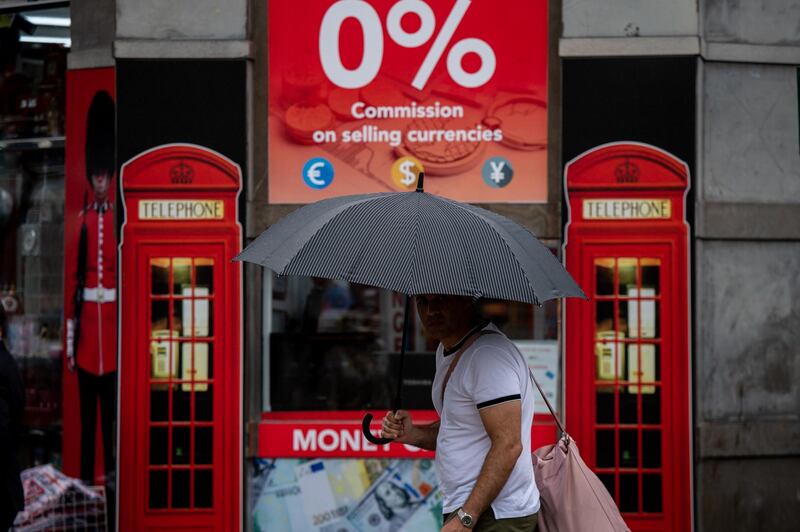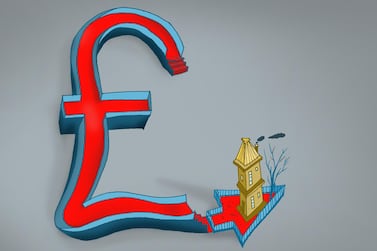The pound hit a 30-month low on Thursday, pressured by a rising dollar and concern that Britain could crash out of the European Union without a trade agreement in place.
Sterling plunged to a low of $1.2101 overnight in Asia, its lowest since January 2017, after interest rates were cut by the US Federal Reserve.
The currency was last down 0.4 per cent at $1.2118.
Against the dirham, sterling dropped to 0.23 pence.
The pound shed more than 4 per cent of its value in July, its worst month since October 2016, after new prime minister Boris Johnson vowed to leave the EU on October 31 with or without a transition deal, sparking panic among investors.
Bank of England Governor Mark Carney warned that the UK faced a one-in-three chance of falling into recession and that a no-deal Brexit could leave the pound at a record low.
Kit Juckes, currencies analyst at Societe Generale, said that amid "the on-going political carnage as Boris Johnson lays out his Brexit plans and the weakness of the economy, there's nothing to like about the pound."
The Bank of England left interest rates on hold at 0.75 per cent, citing continuing trade tensions between the US and China, with a rise only likely in the event of a Brexit deal being struck.
"Sterling remains vulnerable to a further escalation in Brexit tensions and we anticipate the market will likely discount higher risks of a 'no deal' outcome in the weeks ahead," said Roger Hallam, Currency Chief Investment Officer at JP Morgan Asset Management.
"The UK's significant current account deficit (4.4 per cent of GDP) also makes the UK particularly vulnerable to a deterioration in Brexit sentiment," he added.
Money markets are now pricing in a 25 basis point rate cut by the Bank of England before early 2020, although policymakers may push back against expectations for lower rates in the coming months.
On the Bank of England's trade-weighted index, which measures sterling against its trading partners' currencies, the pound has dropped to its weakest since early November 2016, having fallen more than 7 per cent since early May.
The Bank cut its growth forecast for the UK economy from the previous projection of 1.5 per cent in May, to 1.3 per cent.
The forecast for growth in 2020 was also revised, down to 1.3 per cent from an earlier projection of 1.6 per cent.








